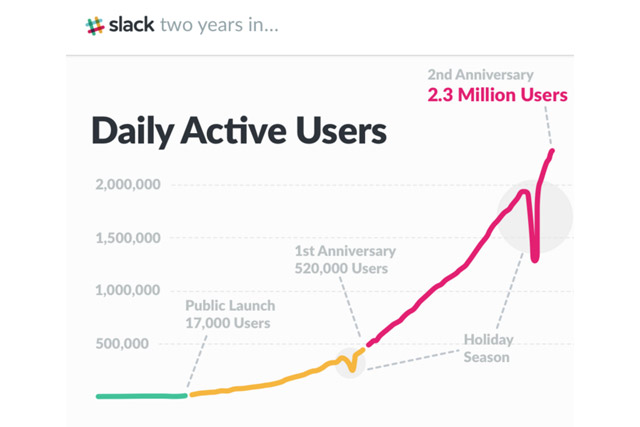
Announced at the Slack customer conference in San Francisco, the team communication tool is growing at a steady pace and has now reached more than 2.3 regular users, which represents a growth of around 15 percent since the end of 2015.
That growth is only expected to continue with new ways to chat among staffers added to the service. The voice chat side will come first, with the ability for users to switch from chatting via text to a VOIP call at the click of a button. Slack no doubt hopes that this can help supplant its own integration with Skype, though the Microsoft service has at least shown demand for the voice call service.
Video calling will come later down the pipeline, but it’s still something on Slack’s to-do list. Details on how it will be integrated were relatively thin, but TechCrunch does report that Slack may look into transcribing voice and video calls for later scrutiny as well.
Beyond these new communication standards, Slack is also looking to integrate better what-you-see-is-what-you-get tools, so that formatting does not sully whatever work a message is copied into. It is also driving the shared channels feature forward, making it easier for different teams at companies to cross-communicate with one another.
That should also make it easier to communicate with external organizations like PR agencies, which you may not want to grant deep access to internal chats, but with whom you may need to communicate regularly.
Does your organization use Slack as a major communication tool?
Editors' Recommendations
- Apple’s FaceTime may soon give you gesture control superpowers
- Skype wants to be your videoconferencing tool of choice




